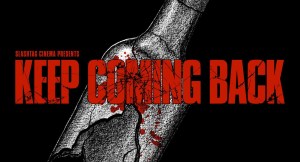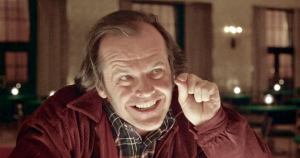Some horror films like to explore the notion of frightening creatures and monsters existing in the world – others prefer the shock and awe of brutal kills and sickening gore – and then there’s the type of horror films that put the human imagination at the forefront of horrible things. Into that latter niche steps It Comes At Night, a movie that is all but destined to go down in infamy as the latest love/hate indie horror phenomenon, which some will find hauntingly brilliant, while others see nothing but an epic disappointment.
The story is set in a post-apocalyptic world where a terrible disease has ravaged humanity, leaving isolated pockets of survivors behind. We meet a family of survivors that consists of patriarch Paul (Joel Edgerton), his son Travis (Kelvin Harrison Jr.), and wife Sarah (Carmen Ejogo). The family lives according to a strict discipline of rules – the biggest being securing the one door that leads outside. The twist comes when, one night, a restless Travis discovers an intruder has broken into the family’s stronghold.
Videos by PopCulture.com
That intruder turns out to be a man named Will (Christopher Abbott), who claims to be looking for sanctuary for his own wife, Kim (Riley Keough), and young son Andrew (Griffin Robert Faulkner). Paul forges a tenuous pact with Will and allows his family to move in; however, the strains of surviving when death is lurking close begin to fracture the civility that’s holding everything, and everyone, together.
It Comes At Night is the big breakout film of director Trey Edward Shults, an emerging talent who worked under the tutelage of Terrence Malick for a time, on films like The Tree of Life. Visually, It Comes At Night is a hauntingly beautiful piece of horror cinema, layered with subtext and depth in the themes and notions of “horror” it touches upon. However, on a more basic level, the story’s dangling mystery and slow-burn build will ultimately fizzle out into a disappointing end for any viewers hoping for a simple horror-thriller experience.

It’s an interesting and frustrating balance that Shults manages to craft in It Comes At Night – and that’s actually part of the point. The film’s thematic subtext is clearly invested in exploring the concept of fear, and what fear does to human beings both personally and in our interpersonal connections. The story (also written by Shults) throws a lot of visual inferences and seeming red herrings of mystery at viewers without answering any of them; but again, that’s the point. How these uncertainties impact the characters, and what kinds of new actions they catalyze, constitutes the entire intrigue of the film (hint: think of “It” as a psychological concept, not a creature). That’s all to say: this is a movie in which the moment-to-moment journey is vastly more important than the destination.
Shults leans into that notion wholeheartedly, creating a viewing experience that is rife with tension for the entirety of its runtime, but will ultimately leave a lot of viewers screaming “WTF?” when the abrupt ending arrives. In a lot of ways, It Comes At Night is a massively risky experiment, and the type of results it will yield depends entirely on the viewer. (NOTE: It’s definitely better to avoid any trailers or promotional materials for the film, as the less expectation you have going in, the better sustained the mysterious dread of the film will be. Watching with some kind of preconceived destination in mind will make the viewing experience much more of a drag.)
Besides some beautiful camera work by Shult’s collaborator Drew Daniels, It Comes At Night has a fantastic cast, who each give the requisite powerful performances to make the film “work” amidst all the vagaries of the storyline. Joel Egderton (Black Mass, The Gift), is masterfully nuanced as a well-meaning patriarch who goes to lengths he never imagined to protect what’s his. Equally good is Christopher Abbott (Girls), who perfectly teeters the line between good and earnest, and suspiciously sinister.
The ladies (Selma‘s Carmen Ejogo and Mad Max‘s Riley Keough) are good at balancing feminine grace and savage mama-bear instincts, moment to moment – but the real breakout is the performance of Kelvin Harrison Jr. (Roots) as Travis. Harrison’s face conveys a multitude of conflicting emotions at all times (pain, sensitivity, anger, longing, joy, panic), and the movie weighs heavily on his ability to keep things tense and off-kilter, as Travis’ sanity is put under the tremendous duress of coming-of-age in the apocalypse. It’s a powerful performance from a young talent, and arguably carries much of the film.

In the end, It Comes At Night will join recent films like It Follows, The Babadook, and The Witch as an indie horror breakout that some hate, while others re-watch endlessly, picking out new insights and interpretations of the title’s implications. For hardcore horror fans, it’s definitely a film to see and discuss; for those who like more mainstream scary movie experiences? Well, Tom Cruise’s Mummy reboot is arriving just in time to feed your needs.
It Comes At Night opens in theaters on June 9th. It is 1 hour and 37 minutes long and is Rated R for violence, disturbing images, and language.
Rating: 3 Out of 5 Stars





